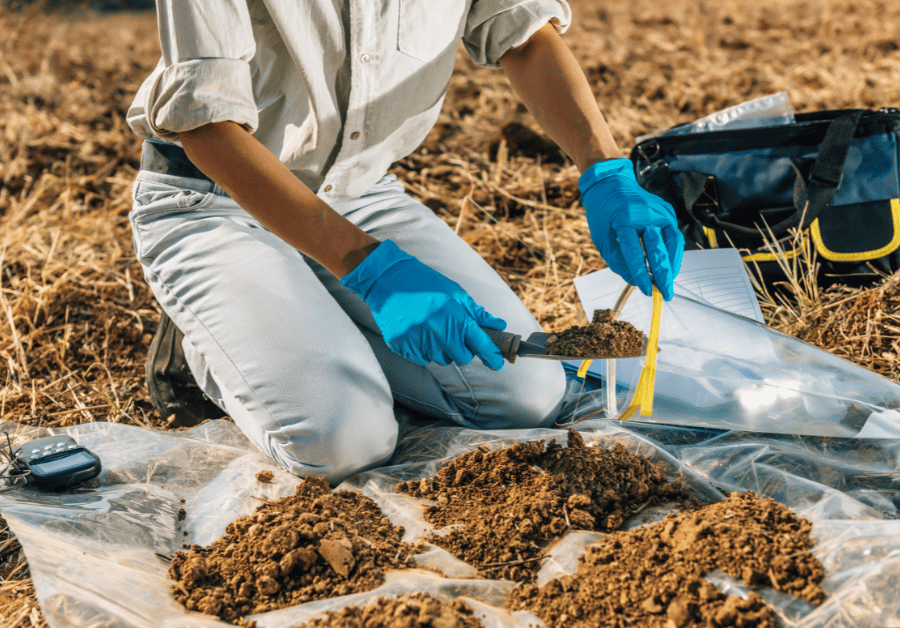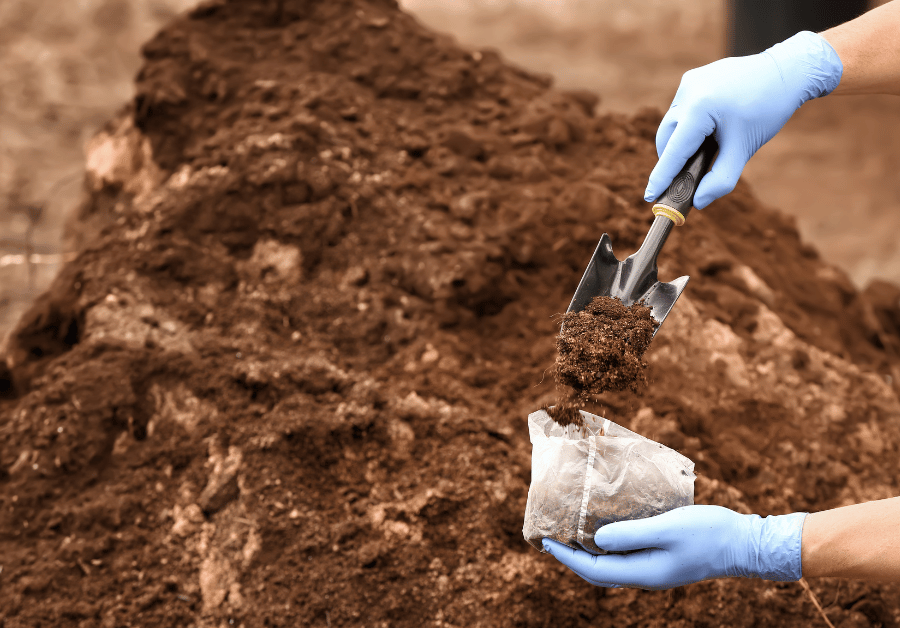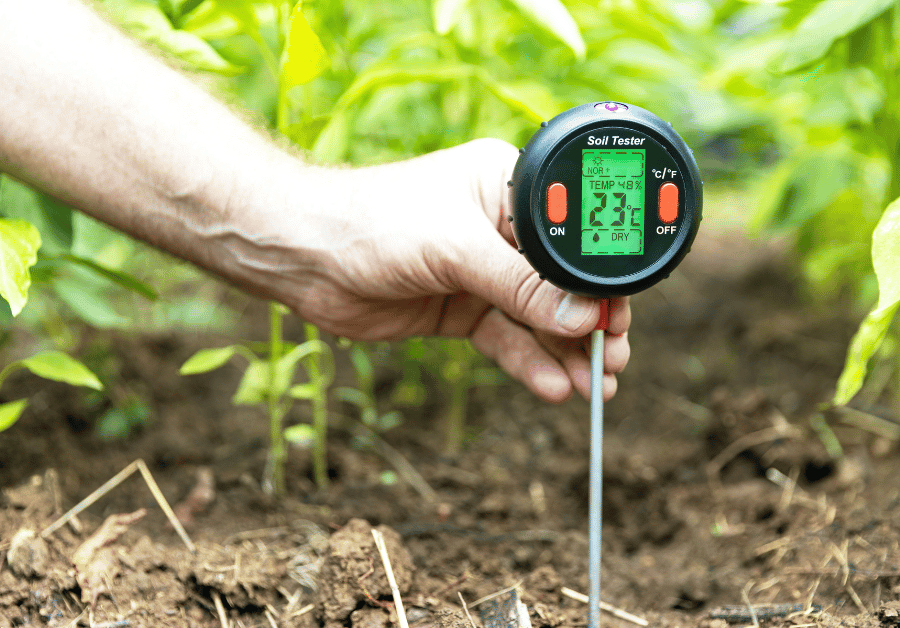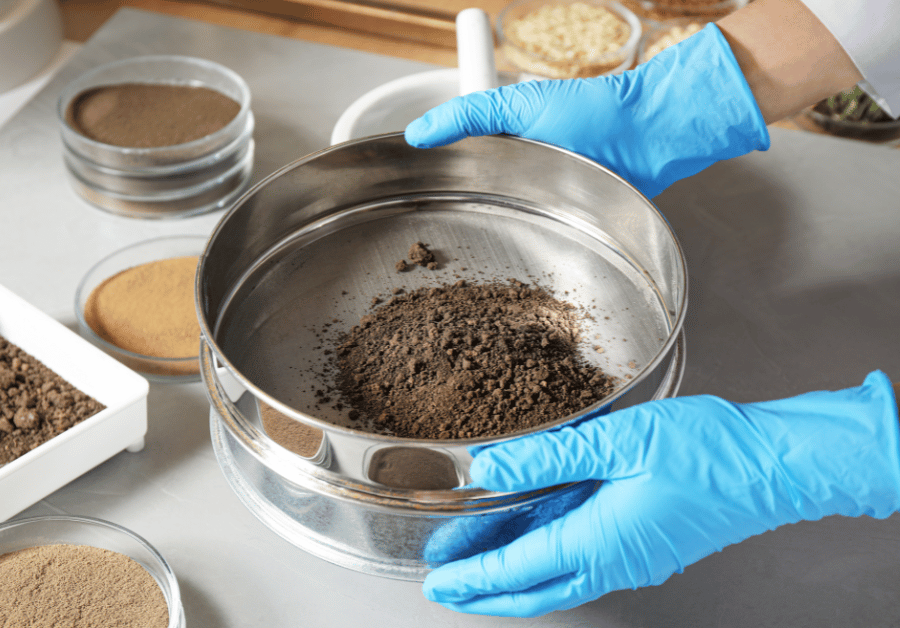Soil Testing Near Me: A Comprehensive Australian Guide
Are you searching for reliable soil testing near me in Australia? Whether you're in Adelaide, Sydney, Melbourne, Perth, Brisbane, or Hobart, understanding your soil is crucial for successful gardening, construction, and environmental management. This comprehensive guide will provide you with everything you need to know about soil testing, including why it's important, what to test for, and how to find the best soil testing services in your area.
Why is Soil Testing Important?

Soil testing is the process of analysing a soil sample to determine its composition and properties. This information is essential for several reasons:
- Gardening and Agriculture: Understanding your soil's pH, nutrient levels (like nitrogen, phosphorus, and potassium), and organic matter content can help you choose the right plants and fertilisers for optimal growth. This is especially important if you have a backyard veggie patch and want to ensure the health and productivity of your crops.
- Construction: Civil soil testing is crucial for assessing the stability and load-bearing capacity of the ground before building a house, road, or other structure. It helps determine the bearing capacity and ensures the footing design is appropriate. Soil reports generated from these tests are vital for structural integrity.
- Environmental Management: Soil testing can identify contaminated soil, which may contain heavy metals, pesticides, or other harmful substances. This is essential for protecting human health and the environment.
What Does Soil Testing Measure?
A comprehensive soil analysis typically includes the following:
- pH Level: Measures the acidity or alkalinity of the soil. Most plants prefer a slightly acidic to neutral pH.
- Nutrient Levels: Determines the concentration of essential nutrients like nitrogen (N), phosphorus (P), potassium (K), calcium (Ca), magnesium (Mg), and sulfur (S).
- Organic Matter: Indicates the amount of decomposed plant and animal material in the soil, which improves soil structure, water retention, and nutrient availability.
- Salinity: Measures the concentration of soluble salts in the soil, which can inhibit plant growth.
- Texture: Determines the proportion of sand, silt, and clay in the soil, which affects drainage, aeration, and water-holding capacity.
- Contaminants: Identifies the presence of heavy metals (like lead, arsenic, and cadmium), pesticides, herbicides, and other pollutants.
Finding Soil Testing Near You in Major Australian Cities

No matter where you are in Australia, finding reliable soil testing services is easier than you might think. Here’s how to locate them in some of the major cities:
Adelaide Soil Testing
If you're looking for Adelaide soil testing, there are several reputable laboratories and testing services available. Whether you need soil testing in Adelaide for your garden, construction project, or environmental assessment, you can find a provider that meets your needs. Look for companies that offer detailed analysis and laboratory soil testing.
Some popular options include:
- Get 3 Quote: Connects you with local professionals offering soil testing services near you in Adelaide.
- Envirolab Services: Offers comprehensive testing services, including soil testing for various applications.
- Eurofins APAL: Provides agricultural laboratory services, including soil analysis and plant testing.
- Australian Soil and Concrete Testing (ASCT): Offers a range of soil and concrete testing services for construction and engineering projects.
When searching for soil testing near me in Adelaide, consider these factors:
- Accreditation: Ensure the laboratory is NATA accredited for the specific tests you require.
- Experience: Look for companies with a proven track record and experienced staff.
- Turnaround Time: Check how long it takes to receive your results.
- Cost: Compare prices from different providers to find the best value.
Sydney Soil Testing
Sydney, with its diverse landscape and urban development, requires robust soil testing services. Whether you are planning a new building, landscaping your garden, or concerned about potential contaminated soil, Sydney has numerous accredited laboratories. Look for services offering comprehensive soil analysis to ensure the safety and stability of your projects.
Melbourne Soil Testing
Melbourne's construction boom and focus on sustainable living have increased the demand for reliable soil testing. Residents and businesses alike need accurate soil analysis for everything from building foundations to ensuring healthy urban gardens. Seek out testing services that provide detailed reports and expert advice tailored to Melbourne's specific soil conditions.
Brisbane Soil Testing
Brisbane's subtropical climate and rapid development necessitate thorough soil testing. Whether you're dealing with residential construction, agricultural projects, or environmental concerns, Brisbane offers a range of soil testing services to meet your needs. Prioritise laboratories that understand the unique challenges of Queensland's soils.
Perth Soil Testing
Perth's sandy soils and growing urban sprawl require careful soil testing for both construction and environmental management. Whether you're building a new home, starting a garden, or assessing potential contamination, Perth has several reputable soil testing services available. Focus on finding providers with experience in Western Australia's specific soil types.
Hobart Soil Testing
Hobart, with its unique environmental landscape, requires specialized soil testing services. Whether it’s for agricultural purposes or construction, ensuring the integrity of the soil is paramount. Look for testing services that cater to the specific needs of Tasmania's environment.
Common Soil Tests and Their Applications

Different situations require different types of soil testing. Here are some common tests and their applications:
- Standard Soil Fertility Test: Measures pH, nutrient levels, and organic matter content for gardening and agriculture.
- Contamination Test: Identifies the presence of heavy metals, pesticides, and other pollutants in contaminated soil.
- Geotechnical Test: Assesses soil strength, stability, and load-bearing capacity for construction projects. This often includes compaction testing and level site assessments.
- ASBESTOS Testing: Identifies the presence of Asbestos fibers in soil.
Steps to Take Before Soil Testing
Before you send your soil sample to a laboratory, follow these steps to ensure accurate results:
- Collect a Representative Sample: Take multiple samples from different areas of your property and mix them together to create a composite sample.
- Use Clean Tools: Avoid contaminating the sample with dirt, rust, or other materials.
- Follow the Laboratory's Instructions: Each laboratory has specific requirements for sample size, packaging, and submission.
- Provide Relevant Information: Include details about your intended use of the land, any known history of contamination, and any specific concerns you have.
Understanding Your Soil Test Results
Once you receive your soil test results, it's important to understand what they mean. The report will typically include a summary of the key findings, along with recommendations for improving your soil.
Here are some tips for interpreting your results:
- Compare your results to the optimal ranges for your intended use. For example, if you're growing tomatoes, you'll want to ensure your soil pH is within the ideal range for tomatoes.
- Pay attention to any nutrient deficiencies or excesses. If your soil is deficient in a particular nutrient, you may need to add fertiliser. If it's excessive, you may need to amend the soil to reduce the concentration.
- Consider the overall balance of nutrients. It's not just about having enough of each nutrient; it's also about having the right balance between them.
- Consult with an expert if you're unsure how to interpret your results. A soil scientist or agricultural advisor can help you understand your results and develop a plan for improving your soil.
Addressing Contaminated Soil
If your soil test reveals the presence of contaminated soil, it's important to take action to protect your health and the environment. The first step is to identify the source of the contamination and determine the extent of the problem.
Some common sources of contaminated soil include:
- Industrial Activities: Factories, mines, and other industrial sites can release heavy metals, chemicals, and other pollutants into the soil.
- Agricultural Practices: Pesticides, herbicides, and fertilisers can contaminate the soil if they're used improperly.
- Waste Disposal: Landfills, dumps, and septic systems can leach contaminants into the soil.
- Construction and Demolition: Lead paint, asbestos, and other building materials can contaminate the soil during construction or demolition projects.
Once you've identified the source of the contamination, you'll need to develop a remediation plan. This may involve removing the contaminated soil, treating it with chemicals, or covering it with a layer of clean soil.
It's important to work with a qualified environmental consultant to develop and implement a remediation plan. They can help you assess the risks, identify the best treatment options, and ensure that the remediation is done safely and effectively.
Soil Testing for Backyard Veggie Patches
Are you concerned about the safety of your backyard veggie patch? Soil testing is crucial to ensure that your soil is safe for growing food. Contaminants like lead, arsenic, and cadmium can accumulate in the soil over time, posing a health risk to you and your family. As Get 3 Quote, we understand the importance of your family's health.
Here's why soil testing is essential for veggie patches:
- Identify Contaminants: Soil testing can detect the presence of heavy metals and other pollutants that may be harmful to your health.
- Assess Nutrient Levels: Understanding your soil's nutrient levels can help you choose the right fertilisers and amendments to promote healthy plant growth.
- Ensure Food Safety: By testing your soil regularly, you can ensure that the food you grow is safe to eat.
If you live in an innercity home or an area with a history of industrial activity, it's especially important to test your soil for contaminants. Even if you live in a newer development, it's still a good idea to test your soil to ensure that it's safe.
The VegeSafe program, run by Macquarie University, offers a free soil metal testing service for Australian residents. This is a great way to get a basic assessment of your soil's safety. You can also contact a local soil testing laboratory for a more comprehensive analysis.
Finding Local Experts Through Get 3 Quote
Finding reliable soil testing services near me can be daunting, but Get 3 Quote simplifies the process. We connect you with trusted local professionals who offer a broad range of testing services. Our platform ensures you receive competitive quotes from verified providers, making it easier to find the best solution for your needs. Whether you're in Adelaide, Brisbane, Perth, or any other Australian city, Get 3 Quote helps you make informed decisions.
Here's how Get 3 Quote can help:
- Access to a Network of Professionals: We partner with reputable testing laboratories and expert soil analysts across Australia.
- Competitive Quotes: Receive up to three quotes from different providers, allowing you to compare prices and services.
- Verified Providers: We ensure that all our providers are licensed and insured, giving you peace of mind.
- Easy-to-Use Platform: Our online platform makes it easy to submit your request and receive quotes quickly.
- Question 1: Why is soil testing important before gardening or construction?Question 2: What does a standard soil test include?Question 3: How can I find reliable soil testing services near me in Australia?Question 4: Is soil testing necessary for backyard veggie patches?
Conclusion: Ensuring Healthy Soil for a Sustainable Future
Soil testing is an essential tool for gardeners, builders, and environmental managers alike. By understanding your soil's composition and properties, you can make informed decisions that promote healthy plant growth, ensure structural stability, and protect the environment. Whether you're in Adelaide, Sydney, Melbourne, Brisbane, Perth, or Hobart, finding reliable soil testing services near me is crucial for achieving your goals. By following the tips and advice outlined in this guide, you can ensure that your soil is healthy and sustainable for years to come.
Ready to get started? Visit https://get3quote.com.au today to find the best soil testing services in your area and receive three free quotes!
